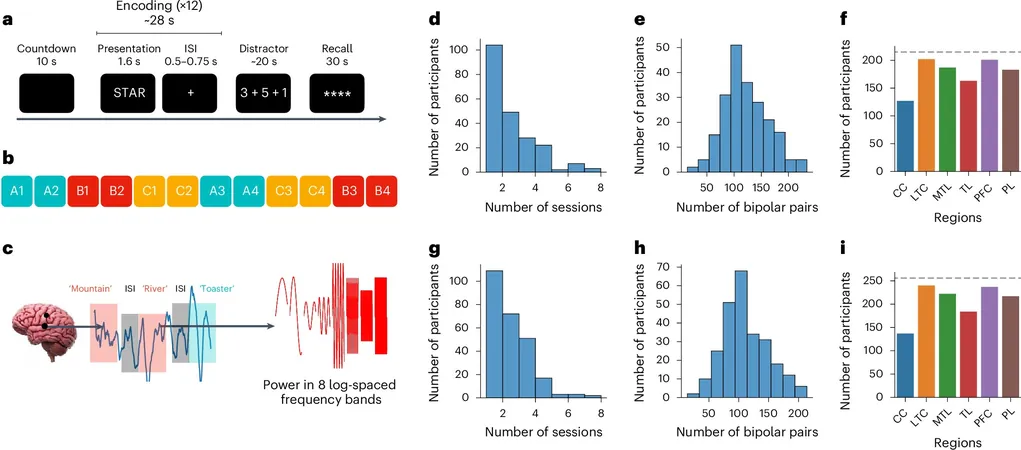
Unlocking the Secrets of Memory: How Brief Brain Reactivation Can Boost Recall
2025-03-30
Author: Daniel
Recent advancements in neuroscience have unveiled fascinating insights into how our brains manage the intricate process of memory storage and recall. Researchers have long recognized the role of memory consolidation during sleep, where the brain reactivates encoded memories, aiding their retention over time. However, a groundbreaking study from the University of Pennsylvania suggests that this reactivation may also occur while we are awake, opening up new avenues for understanding memory enhancement.
The study, conducted by a team led by Dr. David Halpern and Dr. Michael J. Kahana, presents compelling evidence that the spontaneous reactivation of specific memories during brief intervals between their encoding can significantly influence recall accuracy. Their findings, published in the journal *Nature Neuroscience*, reveal that even during wakefulness, the brain engages in a form of memory rehearsal that assists in retaining information temporarily.
Dr. Halpern notes the challenges of studying this phenomenon. “Rehearsal is often an internal, subconscious process, making it difficult to observe unless participants explicitly rehearse out loud,” he commented. To overcome this hurdle, the researchers utilized intracranial electroencephalography (EEG) to track neural activity in patients with epilepsy, who were already undergoing monitoring to identify seizure sources. While participating, these patients performed a memory task that involved viewing a sequence of words and subsequently recalling them.
The results of their analysis indicate that there are notable neural activities occurring on a sub-second scale, suggesting that the brain's reactivation of memories could occur almost instantaneously after an experience. This is particularly exciting as it aligns with theories of memory consolidation that emphasize the significance of neural reinstatement—suggesting that our brains may be engaged in a constant, silent rehearsal of information even while we are conscious.
Dr. Halpern further elaborated on the practical implications of these findings. If future research can delineate the mechanisms behind this awake reactivation, it could lead to innovative techniques for improving memory retention. Such advancements could benefit various demographics, from students striving to remember complex material to individuals experiencing memory disorders.
As we look to the future, both Dr. Halpern and Dr. Kahana aim to explore the intersections of memory, decision-making, and the subtle rehearsal processes that might influence our choices. Their ongoing research raises intriguing questions about how our memories interconnect and how our brains distinguish between past experiences and present perceptions.
In a world where the ability to recall information is increasingly vital, understanding the dynamics of memory reactivation during wakefulness could be a game-changer. This emerging field of study promises not only to enhance our comprehension of human cognition but also to offer practical tools for individuals seeking to optimize their memory capabilities. Stay tuned for more updates as this groundbreaking research continues to unfold!

 Brasil (PT)
Brasil (PT)
 Canada (EN)
Canada (EN)
 Chile (ES)
Chile (ES)
 Česko (CS)
Česko (CS)
 대한민국 (KO)
대한민국 (KO)
 España (ES)
España (ES)
 France (FR)
France (FR)
 Hong Kong (EN)
Hong Kong (EN)
 Italia (IT)
Italia (IT)
 日本 (JA)
日本 (JA)
 Magyarország (HU)
Magyarország (HU)
 Norge (NO)
Norge (NO)
 Polska (PL)
Polska (PL)
 Schweiz (DE)
Schweiz (DE)
 Singapore (EN)
Singapore (EN)
 Sverige (SV)
Sverige (SV)
 Suomi (FI)
Suomi (FI)
 Türkiye (TR)
Türkiye (TR)
 الإمارات العربية المتحدة (AR)
الإمارات العربية المتحدة (AR)